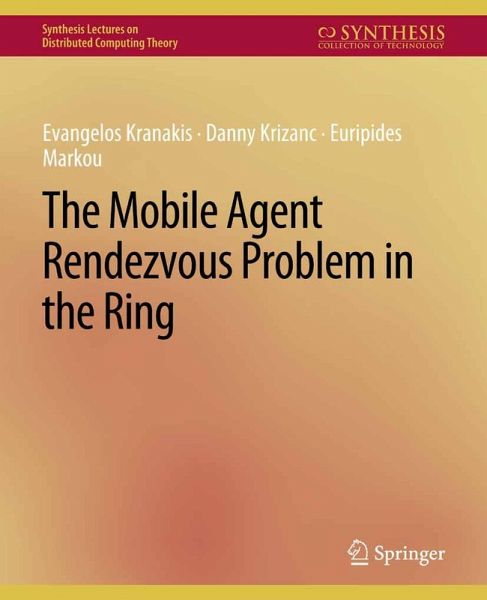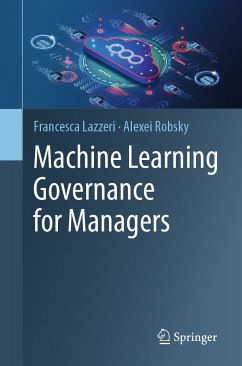
The Mobile Agent Rendezvous Problem in the Ring (eBook, PDF)
Sofort per Download lieferbar
Statt: 35,30 €**
26,95 €
inkl. MwSt.
**Preis der gedruckten Ausgabe (Broschiertes Buch)
Weitere Ausgaben:

PAYBACK Punkte
13 °P sammeln!
Mobile agent computing is being used in fields as diverse as artificial intelligence, computational economics and robotics. Agents' ability to adapt dynamically and execute asynchronously and autonomously brings potential advantages in terms of fault-tolerance, flexibility and simplicity. This monograph focuses on studying mobile agents as modelled in distributed systems research and in particular within the framework of research performed in the distributed algorithms community. It studies the fundamental question of how to achieve rendezvous, the gathering of two or more agents at the same n...
Mobile agent computing is being used in fields as diverse as artificial intelligence, computational economics and robotics. Agents' ability to adapt dynamically and execute asynchronously and autonomously brings potential advantages in terms of fault-tolerance, flexibility and simplicity. This monograph focuses on studying mobile agents as modelled in distributed systems research and in particular within the framework of research performed in the distributed algorithms community. It studies the fundamental question of how to achieve rendezvous, the gathering of two or more agents at the same node of a network. Like leader election, such an operation is a useful subroutine in more general computations that may require the agents to synchronize, share information, divide up chores, etc. The work provides an introduction to the algorithmic issues raised by the rendezvous problem in the distributed computing setting. For the most part our investigation concentrates on the simplest case oftwo agents attempting to rendezvous on a ring network. Other situations including multiple agents, faulty nodes and other topologies are also examined. An extensive bibliography provides many pointers to related work not covered in the text. The presentation has a distinctly algorithmic, rigorous, distributed computing flavor and most results should be easily accessible to advanced undergraduate and graduate students in computer science and mathematics departments. Table of Contents: Models for Mobile Agent Computing / Deterministic Rendezvous in a Ring / Multiple Agent Rendezvous in a Ring / Randomized Rendezvous in a Ring / Other Models / Other Topologies
Dieser Download kann aus rechtlichen Gründen nur mit Rechnungsadresse in A, B, BG, CY, CZ, D, DK, EW, E, FIN, F, GR, HR, H, IRL, I, LT, L, LR, M, NL, PL, P, R, S, SLO, SK ausgeliefert werden.












